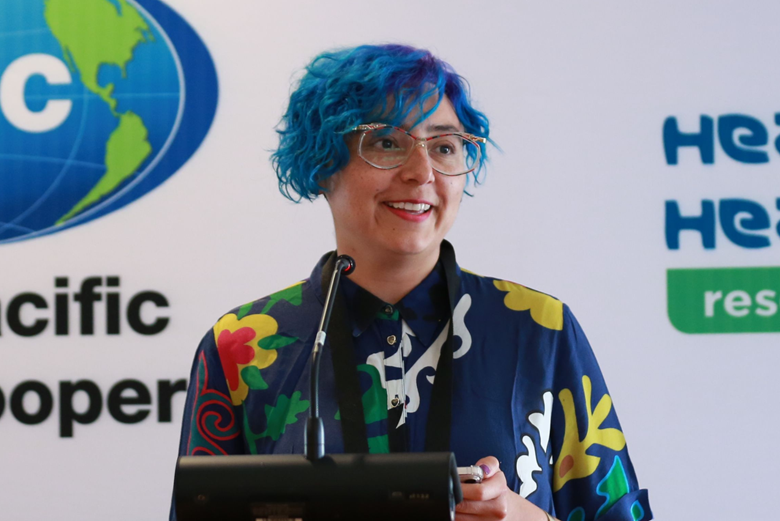From Care to Change: Why Women’s Empowerment is Everyone’s Business

Caregiving is not a private burden; it’s economic infrastructure. And valuing it is key to building a more inclusive, resilient and prosperous future.
When we talk about the care economy, we often use statistics. We cite the data, we build dashboards, we call for reform. But for me, this isn’t just a policy issue—it’s personal.
Just days before our Policy Partnership on Women and the Economy (PPWE) meeting in Jeju, I became the guardian of a child I will soon adopt. I wasn’t able to be with my fellow delegates in person because I was doing what millions of women around the world do every day: caregiving.
This moment in my life has brought clarity. It has deepened my conviction that caregiving must no longer be treated as a private burden, it is a share societal responsibility. It is economic infrastructure. And it is time for our institutions, governments and businesses to step up.
Across the Asia-Pacific region, women shoulder a disproportionate share of caregiving responsibilities, often at the cost of their own economic potential. According to APEC’s Women and the Economy Dashboard, only 18 economies have domestic care policies, and just 17 percent provide universal access to affordable childcare. Postnatal leave in many economies remains insufficient. This has to change.
The care economy is not a women’s issue, it is an economic imperative. It is about ensuring everyone, regardless of gender, can contribute fully to the economy and live a life of dignity.
Investing in care means investing in productivity, in equality, in growth. And yes, it means investing in our future.
That’s why this year, under Korea’s host year priorities of "Connect, Innovate, Prosper", we are tackling the care economy head-on, alongside three other critical areas:
- Women’s leadership in global value chains
- Resilient and inclusive economies
- Women in science, health, AI and environmental sustainability
We cannot talk about the future of our economies without including our youth, particularly young women. They are not the leaders of tomorrow; they are already leading today. They are building startups, driving innovation, and reshaping their communities. Yet, in our region, young women aged 15 to 24 face a youth unemployment rate of 16 percent, significantly higher than their male peers. This disparity not only reflects a loss of opportunity, it reflects a loss of talent, of creativity, of growth. If we want truly inclusive development, we must create pathways that allow our young women to thrive.
At the same time, we must confront the defining crisis of our era: climate change and environmental sustainability. Women are at the frontlines leading grassroots movements, pioneering clean technologies and shaping community-based solutions. But too often, their voices are excluded from environmental decision-making. We must change that. We must empower women to lead the green transition and participate fully in shaping a more sustainable and resilient future.
This also means closing the gender gap in science, technology, engineering, and AI, fields that are already transforming our economies. Women are underrepresented in these sectors, despite the immense potential they bring to innovation and problem-solving. If we fail to act, we risk replicating existing inequalities in the digital age. But if we succeed, we unlock new engines of inclusive growth.
During our Jeju gathering, I was deeply inspired by the energy and commitment of delegates across the region. Our conversations were honest and urgent. We talked about gaps, like how only 10 economies in our region fully address women’s health needs. We looked at opportunities, like harnessing the power of digital transformation to build resilience and close divides. And we rallied around solutions. From care infrastructure to workplace equity, from youth leadership to sustainability.
But perhaps the most powerful reminder came not from the data, but from the people. The women who spoke. The stories they told. The passion they brought to the room.
We are not here to tick boxes. We are here to drive change. To reshape the way our economies value care. To ensure women are not left behind in the digital transition. And to lead with the truth that when women advance, our economies advance.
This is just the beginning. As Chair of the PPWE, I invite all APEC economies to take bold action, not only to recognize women’s contributions, but to enable them. Let’s reimagine how we design our policies, our workplaces, our societies, so that no woman has to choose between caring for a loved one and contributing to her economy.
Because when we care for our people, for our planet, and for progress, we prosper.
Anita Peña Saavedra is the Chair of the APEC Policy Partnership on Women and the Economy and Head of the International Affairs Department at the Ministry of Women and Gender Equity of Chile. A passionate advocate for inclusive growth and gender-responsive policymaking, she brings decades of experience in social development, public sector transformation and multilateral cooperation.

